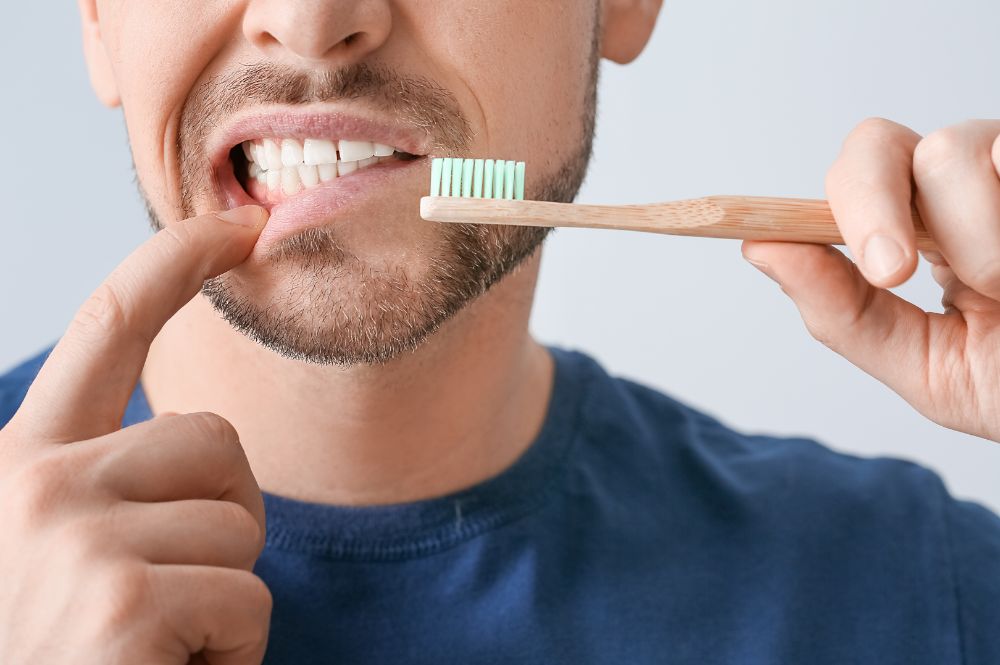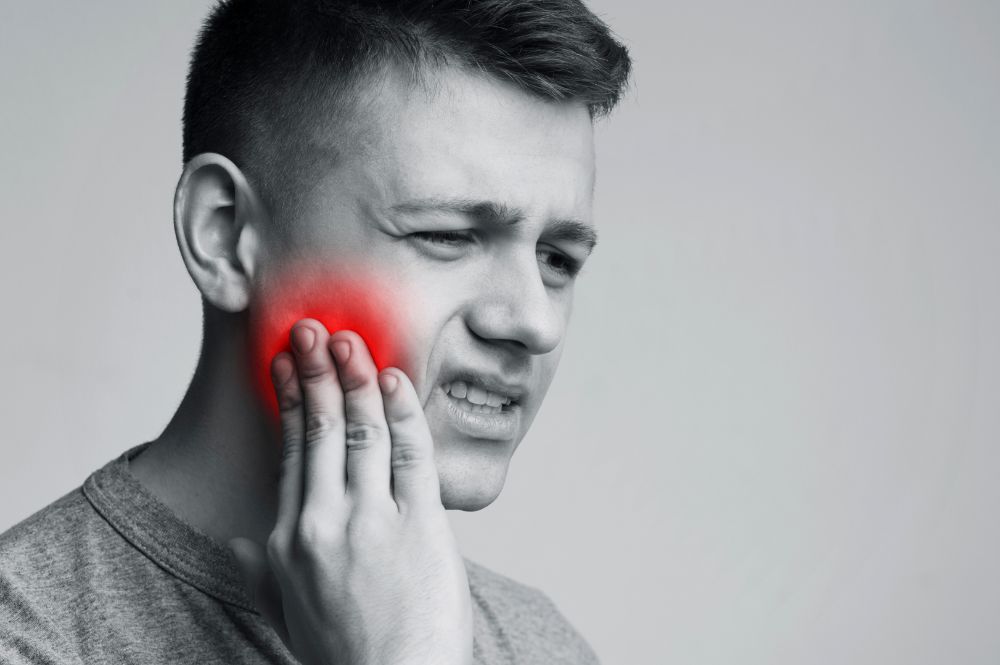They said a smile is the cutest thing you’ll ever wear. But it’s a problem when you cannot wear it boldly due to sharp or mild tooth pain. Most times, it just comes and goes, and other times it occurs consistently, even when minimal.
If you don’t pay attention to it, these sensitive teeth might result in you seeking serious medical attention.
If you or any family member is struggling with tooth sensitivity, this article provides all you need to know to overcome it.
What is Tooth Ache?
Tooth pain or ache is generally the pain you feel in or around your tooth or set of teeth. Tooth ache happens when the nerve in the tooth’s root canal becomes irritated.
When you begin to feel mild or severe pain around your teeth, know there might be something wrong.
Thus, it is essential to be proactive when you experience such occurrences. When left untreated, an infected tooth can worsen your dental health.
What are the Common Causes of Tooth Pain?

Tooth ache can happen due to several reasons. Most of them are treatable if you seek dental treatment as soon as possible.
Some of the common reasons for dental pain include:
Tooth Decay
The major causes of chronic tooth sensitivity are tooth decay or cavities. This typically happens when you maintain poor dental hygiene for long periods.
Cavities are typically created when sugary substances mix with your saliva, affecting your teeth. This usually happens when you maintain poor oral hygiene. It would help if you always kept a regular habit of brushing your teeth with fluoride toothpaste and flossing to prevent dental decay from occurring.
Cavities usually go unnoticed at first, making them difficult to detect. It’s also recommended to visit your dentist for tooth cleaning.
Gum Disease
According to a report, 23% of Australians suffer from periodontal disease (gum disease). This is also caused by poor dental care, resulting in the development of plaque in your gums.
Over some time, the bacteria and plaque will make your gums swollen and red, causing sharp pain.
In some rare cases, some people might feel no pain. However, if left untreated, gum disease will result in tooth extraction.
If you’re experiencing tooth pain and spotting swelling in your gums, you should seek dental attention. However, it’s always better to play it safe by scheduling dental appointments and taking good care of your teeth.
Wisdom Teeth
Another reason you could be experiencing tooth pain could be pain from your wisdom tooth. This is the set of adult teeth to grow in your mouth. It is located at the back of your mouth.
In some cases, these teeth called third molars, develop naturally, causing zero pain. However, in some cases, they are stuck in your gums or trapped in your jawbone while developing. This can cause tooth infections, gum disease, cavities, and other dental problems.
You will probably notice a tender or red surface at the back of your jawline when this tooth is ready to come out. You will continue to feel the tooth pain or discomfort as the tooth continues to grow. Wisdom teeth hurt suddenly when left untreated and can cause tumours and cysts.
Teeth Grinding
You can also feel tooth pain when you grind your teeth. This is a common practice when people feel stressed or tense. However, when it is done frequently, you’re not only deteriorating your teeth but unloading stress on your lower jaw.
People who suffer tooth pain from tooth grinding may not be aware of their practice. They may be unconsciously doing it at night when they sleep.
Abnormal Bite
Another reason you may struggle with tooth pain is an abnormal bite. This occurs when your upper teeth don’t fit with the lower teeth when clenched.
When this happens, you may experience discomfort during biting or chewing.
According to studies, abnormal bite (malocclusion) is often hereditary. However, it could happen due to the following reasons:
- Extra teeth loss.
- Excessive use of pacifiers.
- Impacted teeth.
- Thumb-sucking.
- Unsuitable dental appliances.
Tooth Enamel Erosion
Tooth enamel is the hardest tissue in the human body. It is even tougher than the bone. However, when it is excessively exposed to food and fluids, it is prone to deteriorate.
This phenomenon is known as enamel erosion. It can result in tooth sensitivity, discolouration, cracks, indentations, and tooth pain.
Loosed Dental Filling
A dental filling is a corrective dental treatment to fill up a tooth’s cavity and restore its original form and shape.
When it is not properly done
Teeth Trauma/Injury
Another reason you might have toothaches is a dental injury resulting from a broken or knocked tooth.
You’re bound to experience mild or sharp pain if your tooth is broken.
Abscessed Tooth
This is an infection that occurs within the pulp inside the tooth. The condition develops till it gets to the root canal.
Some of the symptoms of an abscessed tooth include:
- Chronic nerve pain.
- Infected root.
- Swollen gums.
- Potential bone loss at the surface of infection.
Seek dental attention if you experience any of this.
Sinusitis
Sinus infection can also be the reason for tooth pain. It is when the sinuses in the skull become inflamed and pressured due to bacterial or fungal infection. It pushes the roots of your upper teeth, causing pain and discomfort.
Crowded Teeth
You can also feel discomfort if you have crowded teeth. This can be caused by a misaligned, crooked, overlapping, or chipped tooth.
What Are the Common Symptoms of Tooth Pain?

You can experience a mild or sudden toothache, causing pain ranging from mere discomfort to severe ache. It could even spread to other parts of your body, such as your head, jaw, or ear.
Some of the symptoms related to toothache include:
- Pain when chewing or biting.
- Pain when you either clench or unclench your teeth.
- Bad breath and mouth odour.
- Bleeding from your gums.
- Sensitivity when brushing your teeth.
- Sensitivity to hot, cold, or warm water or food.
- Sensitivity when you touch your teeth.
- Fever or headache.
- A foul taste in your mouth.
If you feel any of the symptoms above, you struggle with a toothache.
Can You Treat Tooth Aches At Home?
There are several home remedies you can deploy when you experience a toothache. However, it is recommended to seek dental care. Some of the home remedies include:
- Rinsing your mouth with saltwater. Saltwater can is known to loosen the debris between your teeth and also works to reduce pain and inflammation. Pour 1/2 teaspoon of salt into a glass containing water and stir. Rinse your mouth with it.
- Rinse with hydrogen peroxide. A 3% hydrogen peroxide solution is known to reduce inflammation. Dilute the mixture with equal amounts of water and rinse your mouth.
- Use garlic. Garlic is known to eliminate bacterial infection lodging in the teeth. You can make a paste of garlic clove and attach it to the affected areas of your mouth.
At What Point Should You Visit the Dentist’s Office?
It is recommended to see your dentist when you feel discomfort with your teeth. Early detection is key to preventing some expensive dental treatments for your teeth.
So, when should you pay a visit to the dentist?
- If your toothache lasts longer than 48 hours.
- A fever that accompanies your headache.
- Sharp pain and throbbing in your teeth.
- A migraine that extends to your mouth and teeth.
What Happens When You Visit the Dentist for Toothaches?

As mentioned earlier, home remedies may not permanently fix tooth pain. Thus, it is vital to seek dental attention when you experience pain in your teeth.
Your dentist will look at your medical history at the dental office to ascertain your condition. You will most likely answer questions like:
- How painful is the toothache?
- When did it start?
- What makes the pain worse?
- Location of the pain?
Your dentist will also conduct a physical exam. This includes checking your mouth, jaws, tongue, teeth, ears, nose, neck, and gums.
Your teeth might be x-rated to determine the cause and extent of the pain.
How Will the Dentist Treat Your Toothache?

After a thorough examination, a professional dentist will procure the following solutions:
- Tooth cavity. If you’re suffering from tooth decay or cavity, your dentist will conduct dental filling to remedy the situation. If your condition is critical, they might perform a tooth extraction.
- Root canal. If the nerve of your tooth is affected, a root canal might be conducted. It is a dental procedure designed to remove and replace the infected pulp of the teeth.
- Antibiotics. Your dentist may prescribe over-the-counter medications for swelling and fever in your jaw.
- Dental cleaning and scaling. If debris and plaque are stuck in your teeth, your dentist may do dental scaling and cleaning. It is a process where your teeth are thoroughly cleaned, leaving them bright and clean.
Conclusion
Tooth pain can be a difficult experience, severe or mild. It is essential to maintain healthy dental hygiene to prevent such occurrences.
It is also vital to have constant dental checkups to detect and treat it before it morphs into something worse. Thankfully, we’ve provided you with all you need to know about tooth pain and how to treat it.

